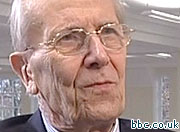Legalising assisted suicide would increase pressure on vulnerable people to ask for help to kill themselves, the House of Lords has heard.
Lord Tebbit said his wife, who was severely disabled by an IRA bomb in 1984, had already told him that he would be better without her.
His comments came last Friday as Peers debated the Assisted Dying Bill.
Pressure
Lord Tebbit said: “I speak with some feeling. I have had the prime responsibility of the care of my wife for the last 30 years.
“She has been in constant pain. It is getting worse. She requires more and more care. I fear for the day when she will say again to me what she said to me a little while ago: ‘You know, you would be better off without me’.
“There are many ways in which pressure can be brought to bear to make people who are perhaps approaching the end of their lives—although I hope that my wife is not—to ‘do the decent thing'” he said, adding that amendments to the Bill do nothing to avoid that pressure.
Drafting concerns
Some 170 amendments have been added to the proposals by Peers, suggesting a level of concern about how they have been drafted.
Following the debate, which heard from both sides of the argument, a pro-euthanasia group claimed they were “winning the day”.
However the Bill is unlikely to become law since it would require Government time in the House of Commons in the run-up to next year’s General Election.
Consider the weak
Speaking last week bioethics expert Dr Trevor Stammers said: “Scripture tells us that we have to consider the weak, and bear one another’s burdens”.
“To destroy the person rather than help them with their problems is not the way I want medicine to go in this country.”
However the deputy chairman of the British Medical Association (BMA) has claimed there will “definitely” be a change in the law “within two or three years” in favour of assisted suicide.
Dr Kailash Chand, who has previously spoken out in favour of euthanasia and assisted suicide, made the comments in a personal capacity.
In July the BMA said it “remains firmly opposed to legalising assisted dying”.


